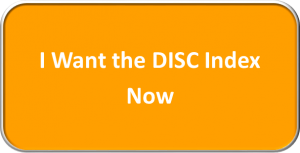from the Turning Good People Into Top Talent blog series
By Bob Moore, CMC
The topic of bad management has been getting a lot of publicity lately. I recently reported that surveys by Aon/Hewitt, Deloitte, and Gallup point to bad managers as the root of the employee disengagement and turnover problem—the number one issue on the minds of most CEOs. Jim Clifton, Chairman and CEO of Gallup, was particularly critical of managers in the recent May 2015 “State of American Managers Report.” He cited data that concluded 70% of the variance between high and low levels of employee engagement is attributed to management effectiveness.
Peter Drucker first sounded the alarm in the early 70s when he predicted the coming knowledge–based workforce. He was the first to use the term “knowledge worker” and is on record that we would not know how to manage them. In the 90s, Drucker was very outspoken about what would be required to succeed in the knowledge economy. He said in an HBR article that knowledge workers and those who manage them must know themselves, understand their strengths, motivators and how they operate. I think he was talking about work styles, EQ and other elements of behavior that are easily measured and developed. I have personally been working with clients on this for almost 40 years.
I believe it is time for action. Let’s start by agreeing that we have a mismatch between how the workforce of today is being managed and the style managers are using. The key to success lies in taking a behaviorist approach to people management. The good news is behavior can be measured and recorded. Marketing departments and savvy sales executives have already demonstrated the success of a behavioral approach. They have successfully mapped customer behavior, modeling their actions, and quantifying their responses to particular campaigns.
I believe the future of talent management lies in a similar data-driven approach based on measureable human behavior. This means taking a more scientific view of management and listening to what the data tells us about how people will respond to certain strategies rather than relying on hunches, best guesses or ingrained beliefs about what does and does not work. Bad people management often comes down to conflict between these different personality types or behavioral styles.
Yet, a large proportion of HR professionals view employee behavior as completely different from customer behavior. They appear to treat it as more of an art than a science and do not believe that technology can help them to better understand complex culture change and employee engagement issues.
Take a Behavioral Test Drive
You and your team can take a test drive of a behavioral assessment for only $7.00 (a $95.00 value) and includes a 30-minute phone debrief. Click on the button below to claim your 22-page report, which takes less than 10 minutes to complete the online questionnaire.
This is a time-limited offer that expires on July 31. Act Today.


